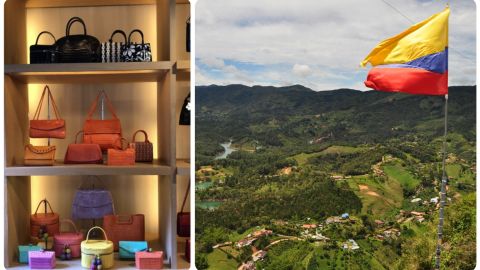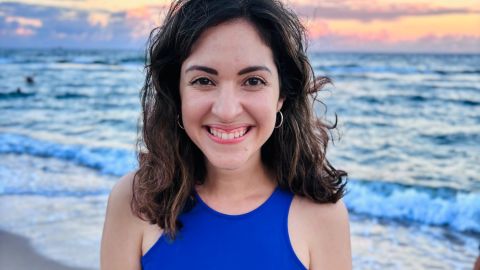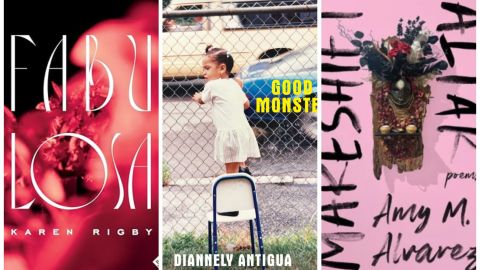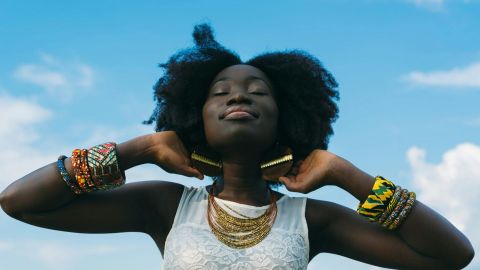8 Things to Know About the Indigenous Peoples March in D.C.
It’s a new year, which means renewed motivation to make change happen for those who need it most
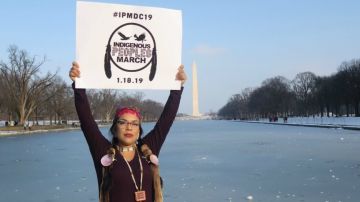
Photo: Instagram/bycindyrodriguez
It’s a new year, which means renewed motivation to make change happen for those who need it most. We are not going to stand idly around while Americans and those wishing to become Americans are suffering severe injustices. Our indigenous communities are hurting, and demanding change. Part of this action is in the form of the upcoming Indigenous Peoples March, happening this month in Washington D.C. Here is all the information you will need to attend the march, support it, and spread the word.
wp_*posts
When and Where it Takes Place
The Indigenous Peoples March is happening on Friday, January 18 (the day before the Women’s March). The gathering location will be at the Bureau of Indian Affairs Office, at 1849 C Street NW, Washington D.C. There will be a prayer at 9 am, and the march to JFK Hockey Field (National Mall) begins at 10. A rally will take place from 11 am to 5 pm, at 1964 Independence Ave. SW, and the plan is to be out of the park by 6 pm.
wp_*posts
Who is Organizing the March?
The march, according to the event site, “is helmed by a coalition of organizations, tribal councils, activists, influencers, media and [a] youth leaders committee.”
wp_*posts
Suggestions for Marchers
It’s recommended that marchers wear comfortable and warm clothing (layers!), as there will be no cancellations, rain, snow, or shine. You are also advised to bring blankets, chairs, for the rally portion, and a reusable water bottle. Backpacks/bags should be small in size (larger bags can be stored at Union Station), and there are no limitations on bringing banners, signs, flags, and other visuals, or their size. For info on transportation and lodging click here.
wp_*posts
The Goal of the March
According to the march’s event page, the event was designed to bring awareness to injustices against indigenous men, women, and children, who are a target of genocide. Currently, the Indigenous Peoples Movement explains, “many Indigenous people are victims of voter suppression, divided families by walls and borders, an environmental holocaust, sex and human trafficking, and police and military brutality, with little or no resources and awareness of this injustice.”
wp_*posts
What to Expect in Addition to the March and Rally
In addition to the march, the event will include voices from “all indigenous communities and nations” involved in these injustices. Cultural representations— prayer, song, and dance — will be shared. Spanish translating will be available.
wp_*posts
Can Non-Indigenous People Attend?
Yes! According to the organizers, the Indigenous Peoples March is open to anyone “who believes indigenous rights are human rights.”
wp_*posts
Fundraising Concert in the Evening
After the rally, from 7 pm to midnight, the Indigenous Peoples Movement will be hosting a fundraising concert at Songbyrd Music House (2477 18th St. NW). Featured acts include Hobawea Nahish Demaray, Saylove, Terrance Jade, Clara Kent, Pete Sands, Selan, Naatani Means, Quese MC, Prowess the Testament, and Supaman. The Cover is $15 (another site says $20). More details will be announced prior to the event.
wp_*posts
If You Can’t Attend, But Want to Help
If you are unable to make it out to Washington D.C. for the march, you can attend or host your own solidarity march. A representative from the Indigenous People Movement’s field team will help you with information to get started, as well as weekly updates, and necessary tools. You can also donate to the Indigenous Peoples March, and/or volunteer.










